(674 products available)




















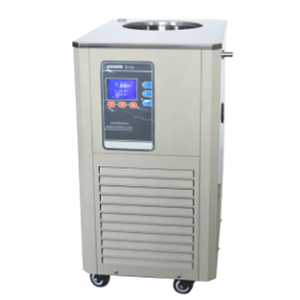
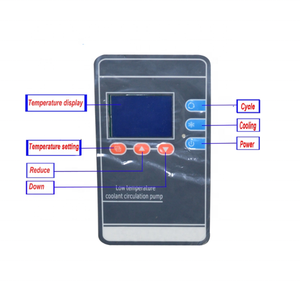

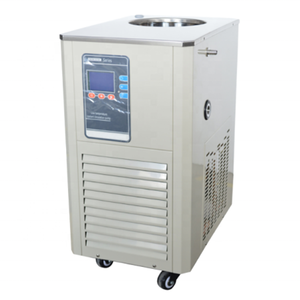















































































































































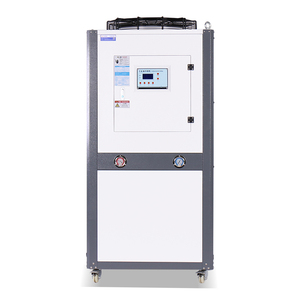



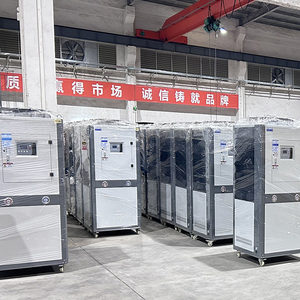
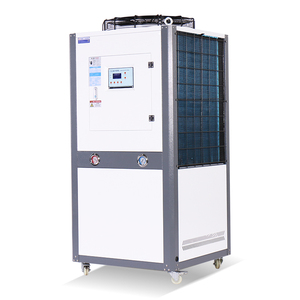







































































A chiller is a machine used to provide cold liquid, usually water, which is used to cool equipment and facilitate some industrial processes. It can be grouped into two broad types based on the source of heat removal.
Chiller price
Scheduled maintenance is crucial for air-cooled and water-cooled chillers to ensure they operate efficiently and have a longer lifespan. Every few months, normal checks. Maintenance by specialized personnel every 6 months to a year, depending on how frequently the chiller is used. Some things to check for are:
Food and beverage industry:
In the food and beverage industry, chillers are essential appliances. They help keep fresh items, such as fruits, vegetables, and meat at cool temperatures to avoid spoiling. The reliable cooling system of a chiller also helps maintain the right flavors, textures, and quality of products like ice creams, sodas, and breweries. what's more, in commercial kitchens and restaurants, chiller equipment is used to store cooking ingredients and prepared dishes to ensure food safety and compliance with regulatory standards.
Hospitality industry:
In hotels, chiller machines are a key component to maintaining guest comfort. Central air conditioning systems rely on chillers to cool large areas, including guest rooms, meeting rooms, and public spaces. Chillers are also used in hotel refrigeration systems to store perishable items.
Industrial manufacturing:
Chillers play a critical role in industrial production processes by controlling and regulating equipment's temperature and keeping it at an optimal level. This not only maintains the stability of the product but also maximizes work efficiency. The grease, lubricating oil, and hydraulic oil used in industrial machines are very important for machine operation, and cooling is essential for the preservation of these fluids.
Agriculture and horticulture:
In agriculture and horticulture, chillers are used to maintain environmental control systems, such as temperature and humidity, to promote the growth of crops and flowers. This is especially important for the cultivation of sensitive crops and ornamental plants. In addition, agricultural and horticultural chillers are also used in post-harvest processing. For example, they are employed in ripening control, dehydration, and freezing, among other processes.
Pharmaceutical and biotechnology:
In the pharmaceutical and biotechnology industries, the production processes need to be precisely controlled at specific temperatures, which requires the use of chillers to ensure the stability of the reaction and fermentation, thereby achieving the desired results. At the same time, refrigerating machines are also responsible for the storage and transportation of temperature-sensitive products, such as biological agents, vaccines, and medicines, to ensure that these products maintain their efficacy and integrity.
Direct Factory Pricing
Finding chiller price importers who offer direct factory pricing is the first essential step. This ensures that businesses are benefiting from wholesale pricing rather than inflated retail prices. Working with importers that have established solid connections with manufacturers means prices are kept as low as possible. They're able to pass on significant savings to their clients.
Low Minimum Order Quantities
When selecting a chiller price importer, it's crucial to consider the minimum order quantities they impose. Some importers may require businesses to purchase large quantities of products, which can be financially burdensome. It's important to find an importer with a low minimum order requirement so that ordering small amounts of expensive industrial chillers is still affordable.
Large Inventory
The importer's inventory size is an important factor to consider as well. Ideally, one would like to work with an importer who has a great many products available to choose from. This gives more options when it comes to selecting the types of industrial chillers that are going to sell well in one's market.
Dependable Shipping
Dependable shipping is obviously a vital consideration when it comes to choosing the right chiller price importer. It is essential to ensure that the imported goods arrive on time and in good condition. Reliable transportation services allow businesses to get their products on schedule and maintain their inventory levels to meet customer demand. Partnering with an importer that offers efficient and trustworthy delivery services minimizes the risk of delays and enhances the overall supply chain operations.
Q1: Which factors affect the chiller cost?
A1: Several factors can influence the price of industrial chillers, such as the capacity or cooling power. Bigger chillers with higher capacities tend to be more expensive. The type and technology of the chiller will also affect its price. For instance, air-cooled chillers are generally less expensive than water-cooled ones due to their simpler design and widespread use. The efficiency rating of chillers, measured by their coefficient of performance (COP), also impacts the price. High-performance chillers with advanced features like variable-speed compressors or smart controls that optimize energy use tend to be more expensive. Manufacturing processes and supply chain costs can also impact the final price of a chiller.
Q2: What is the lifespan of a chiller?
A2: An industrial chiller's average lifespan can vary depending on several factors like the coolers' type, the quality of its manufacturing, the intensity of its usage, and the level of maintenance it receives throughout its life. Generally, a well-maintained industrial chiller can last anywhere between 15 to 20 years. Some may even last up to 25 years or more if they are taken care of properly. Regular inspections and timely repairs can help keep these machines running for longer periods. It's also important to choose the right size for the application so that it doesn't work excessively hard which could shorten its lifespan.
Q3: What are the signs a chiller is failing?
A3: There are several signs that indicate an industrial chiller may be failing. One of the most obvious is a noticeable increase in energy consumption as the chiller struggles to cool properly. Other signs include unusual noises like grinding or clicking sounds which could mean parts are wearing out. It may also start to leak refrigerant fluid or water. Temperature fluctuations where the chiller fails to maintain the desired cooling temperature is another major sign of a failing chiller. An alarm system malfunction is also a sign the chiller is failing. If any of these signs are noticed, it's important to have the chiller checked by a professional technician right away to avoid further damage and prevent system downtime.